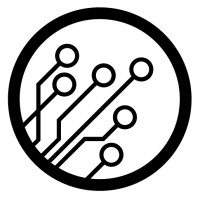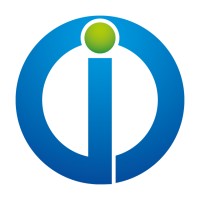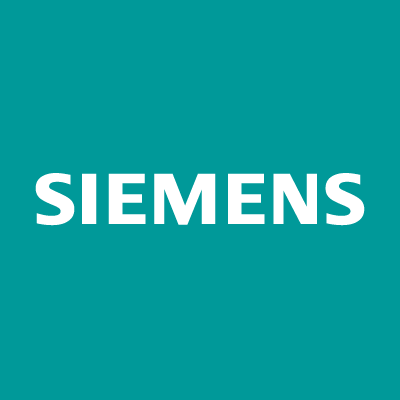Synthetic Sensors Reviews and Ratings
What are Synthetic Sensors?
Synthetic sensors are a virtualized software-based model that deducts and analyzes information indirectly. The information can be integrated from multiple real physical sensors from the same device, or any other device, such as a smartphone, for example. In the industry, this is also known as a virtual sensor or virtual sensing. These systems do not rely on direct hardware measurements but instead infer complex insights like user behavior, emotional states, or environmental conditions by analyzing combined sensor inputs. Their core strengths lie in their ability to deliver real-time, context-aware insights, simulate expensive or impractical sensors, and operate flexibly across diverse environments. Their benefits include cost-effectiveness, improved accuracy, and the ability to operate in environments where physical sensors are limited or unavailable. Synthetic sensors are widely used across industries such as healthcare (for monitoring patient well-being), consumer electronics (in smartphones and wearables), automotive (for driver behavior analysis), and smart homes (for occupancy and mood detection).
Product Listings
Filter by
Augury provides manufacturers and other industrial sectors with insights into the health of machines, processes, and operations to transform how people work and what they can create. Together with their customers, we are building a world where the combined work of people and machines makes life better in every way.
Their Machine Health and Process Health solutions use purpose-built AI, trained by industry experts and the world’s largest data library, to help customers eliminate production downtime, improve process efficiency, maximize yield, and reduce waste and emissions. Augury’s global customers achieve 3-10x ROI, often in a matter of months.
Compredict focuses on developing virtual sensors and intelligent algorithms that convert vehicle signals into actionable insights. The company addresses the need to reduce physical hardware in vehicles by offering solutions that replace traditional sensors, which can reduce system complexity and the risk of hardware failure. Compredict’s technology can be configured for various vehicle models and supports the integration of artificial intelligence in automotive systems, particularly in chassis and powertrain domains. The company also provides tools for real-time monitoring of vehicle wear, fatigue, and anomalies, supporting predictive maintenance and lifecycle management based on data analysis.
Elliptic Labs focuses on developing AI-based software solutions that utilize ultrasound and sensor fusion technologies to create virtual sensors. These virtual sensors enable device-to-device communication and facilitate features such as proximity and human presence detection, as well as functionalities for monitoring breathing and heartbeat. The company's solutions are designed to address challenges related to sensing and interaction in electronic devices.
The company develops software and hardware industrial IoT products designed to address operational challenges in manufacturing and logistics. Its offerings focus on the integration of technology to enhance the efficiency and management of industrial processes, providing solutions aimed at improving automation, monitoring, and data-driven decision making within these sectors. The company’s products are intended to facilitate connectivity across various devices and systems used in manufacturing and logistics operations, aiming to optimize resource utilization and streamline workflow processes.
IntelliDynamics focuses on providing Industrial AI technologies and solutions designed to assist process, product, and production engineers in understanding, predicting, and optimizing production processes. The company addresses the business challenge of improving operational efficiency and performance in industrial settings by leveraging AI technologies and engineering expertise. IntelliDynamics develops and implements AI systems that enable better analysis and decision-making for production processes, supporting organizations in meeting operational goals through advanced automation and data-driven insights.
IntelliSense.io develops artificial intelligence solutions for the mining and metals industry. The company's main focus is improving decision-making in mining operations through its AI-powered Decision Intelligence Platform and process optimization applications. IntelliSense.io addresses operational challenges such as process stabilization, downtime reduction, yield improvement, and lower operating costs per unit in metal extraction and processing. Its technology is implemented across various regions to support efficiency and reliability in industrial operations related to mining and metals. The company is headquartered in Cambridge, UK, with offices in multiple continents.
Applied Intuition focuses on providing software and tools for vehicle intelligence, specifically targeting the development and deployment of AI-driven machines and automation within various transportation and industrial sectors. The company addresses business challenges related to building, testing, and integrating advanced driver-assistance systems (ADAS), autonomous driving technologies, and vehicle operating systems. Applied Intuition supports organizations in automotive, defense, trucking, construction, mining, and agriculture by offering platforms that enable efficient simulation, validation, and implementation of smart vehicle systems. The company is headquartered in Mountain View, California, with global office locations.
SensorUp focuses on providing gas emission management solutions for the oil and gas sector. The company offers a platform designed to deliver actionable insights and operational practices related to gas emission monitoring and management. SensorUp addresses the business need for efficient tracking and analysis of gas emissions, supporting organizations in managing regulatory compliance and operational efficiency within their emission control processes.
Siemens AG (Berlin and Munich) is a technology company focused on automation and digitalization in process and manufacturing industries, intelligent infrastructure for buildings and distributed energy systems, smart mobility solutions for rail transport, and medical technology and digital healthcare services. Siemens AG includes the industrial businesses Digital Industries, Smart Infrastructure and Mobility. Siemens Financial Services supports the activities of our Industrial businesses and conducts its own business.









